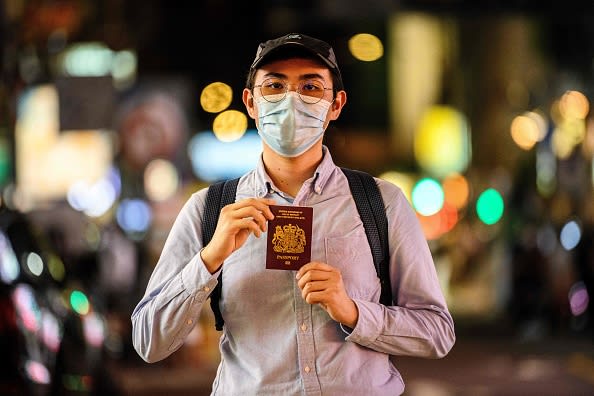
U.S. President Donald Trump (left) and Chinese President Xi Jinping.
Jim Watson and Peter Klaunzer | Pool, AFP | Getty Images
Relations between the U.S. and China — the world’s top two economies — could worsen further as both countries have signaled that they are prepared to fight each other in many more ways, according to a political risk expert.
“There’s a lot of room for escalation here. I think that it’s, by now, quite clear that we’re in for the darkest chapter yet of U.S.-China relations,” Todd Mariano, director for U.S. at Eurasia Group, told CNBC’s “Squawk Box Asia” on Thursday.
“We’re seeing moves now more on the technology and export front. I think the troubling sign is simply the multiplicity of fronts at which the two countries are fighting or preparing to fight,” he said.
In the past few years, disputes between the two countries were focused on areas such as their trade imbalance and contest in technology — which triggered a tariff war threatening to derail the global economy.
In recent months, the U.S. and China have hit out at each other over a wider range of issues which include the origin of the coronavirus and the autonomy of Hong Kong.
There’s a lot of room for escalation here. I think that it’s, by now, quite clear that we’re in for the darkest chapter yet of U.S.-China relations.
Todd Mariano
Eurasia Group
Hong Kong, a major business and financial center in Asia, is a self-governed Chinese territory that has a special trading relationship with the U.S. But Washington has started to pare back some of the city’s privileges under U.S. law as Beijing tightens its control over the territory by enacting a national security law.
In addition, China’s expanding Belt and Road Initiative and continued assertions in the South China Sea also feed into its tensions with the U.S., according to Mariano.
The Belt and Road Initiative is a massive infrastructure push that many analysts and critics see as China’s way of spreading its global influence through lending. The South China Sea is an important sea route for world trade where Beijing has claimed most of it as its own territory, even though other countries also lay claim to parts of it.
“Having such a widespread conflict, I think, really undermines the ability of policymakers to sort of cordon off and resolve tensions on these issues,” said Mariano.
Trump or Biden?
Analysts have warned that U.S. President Donald Trump, in seeking a second term in the White House, could ratchet up rhetoric and other actions against China in a bid to woo voters. The U.S. presidential election is scheduled for November this year.
If Trump gets reelected, Washington’s stance toward Beijing will remain: More bluster, more threats and probably even more tariffs, said William Reinsch, senior advisor and Scholl Chair in international business at think tank, Center for Strategic and International Studies.
I’ve asked that question to a bunch of Americans doing business in China and they all said the same thing: They think that the Chinese prefer Trump to be reelected.
William Reinsch
Center for Strategic and International Studies
Still, Beijing may actually prefer Trump to win the election over his Democratic rival, former Vice President Joe Biden, Reinsch told CNBC’s “Street Signs Asia” on Thursday.
“I’ve asked that question to a bunch of Americans doing business in China and they all said the same thing: They think that the Chinese prefer Trump to be reelected,” Reinsch said in response to CNBC’s question on who would Chinese President Xi Jinping want as the next American president.
“They believe that the Chinese think that the damage that Trump is doing to the western alliance is greater than the damage he’s doing to them. And so, they net come out better,” he said.
Since taking office in 2017, Trump’s “America First” approach has isolated the U.S. from some of its closest allies. The president has threatened elevated tariffs on the European Union and abandoned a nuclear deal with Iran that is backed by traditional allies, including the U.K., France and Germany.
Last month, Trump approved a plan to withdraw some 9,500 U.S. military personnel from Germany. That move came as the president complained that Germany has been “delinquent” in its payments to the North Atlantic Treaty Organization or Nato — an intergovernmental military alliance between 30 North American and European countries.
“He’s irritated our allies, he’s losing friends — that gives China opening in Europe and other parts of the world that they hadn’t had before,” said Reinsch.

